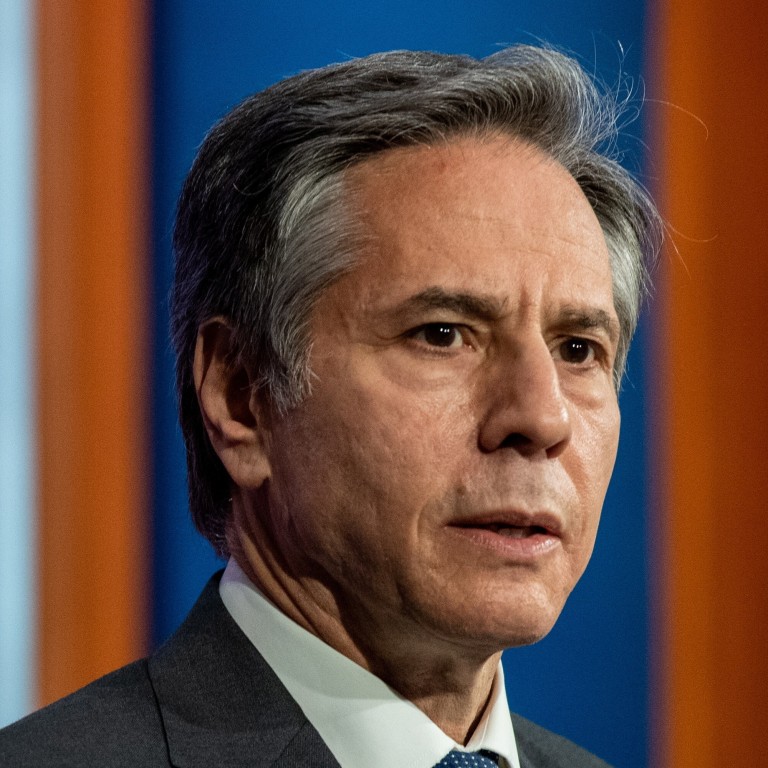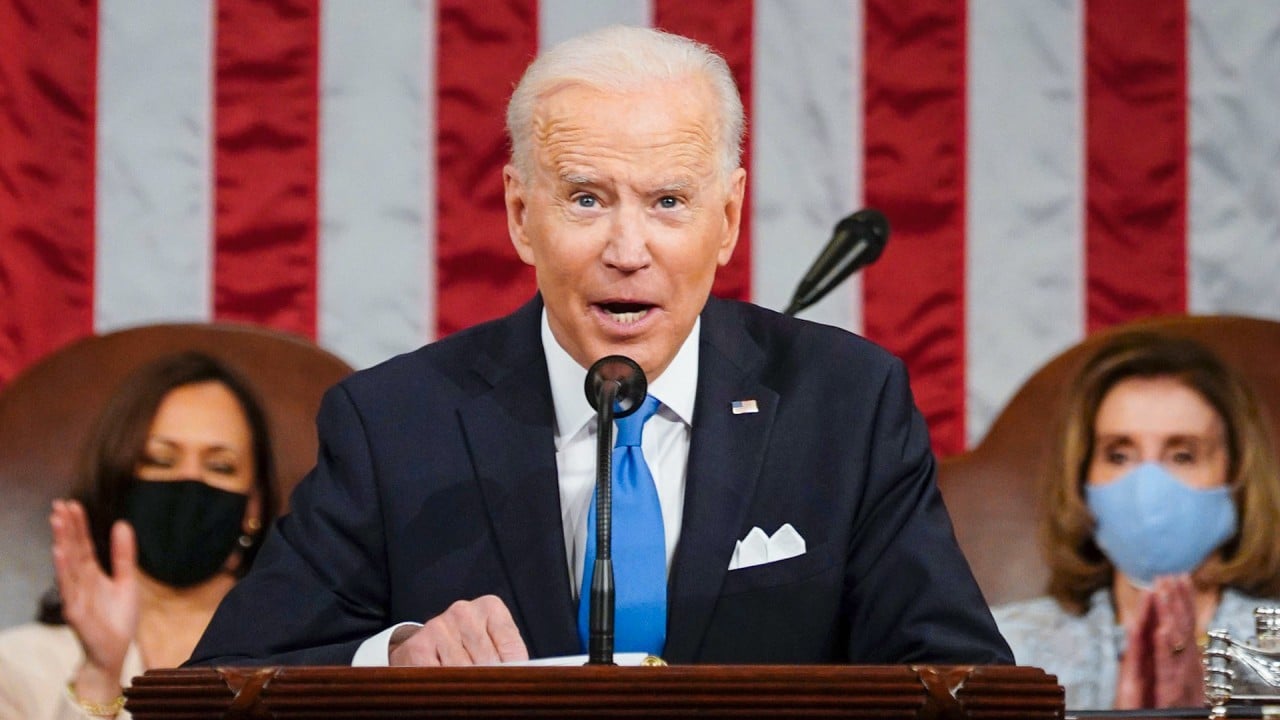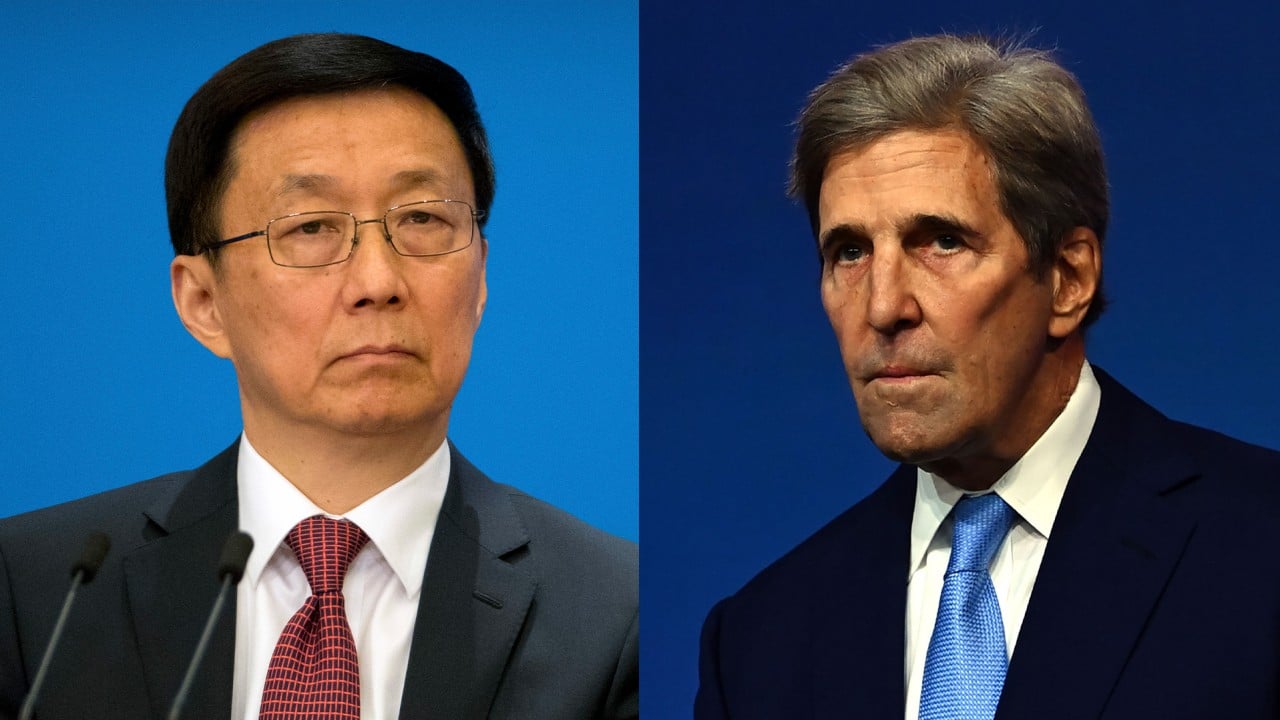
Antony Blinken and Wang Yi to meet again as China hosts UN peace event
- China’s presidency of the Security Council will open with a gathering of foreign ministers to discuss global cooperation
- Chinese UN envoy says Blinken has accepted Beijing’s invitation to meeting which will be chaired by Wang
It will be the first event convened by China as it assumes the Security Council presidency for the month of May, at a time when the body faces numerous challenges including Myanmar, fallout from the ongoing pandemic, and continued friction between Beijing and other countries over human rights.
Blinken had responded with a “positive” answer to China’s invitation to attend the high-level meeting, China’s UN envoy Zhang Jun told reporters. “Quite a number” of other foreign ministers representing the council’s 15 members had also confirmed their attendance, he said.

03:53
China ‘closing in fast’, says US President Joe Biden in first address to Congress
The gathering will focus on the maintenance of international peace and security, upholding multilateralism and the UN-centred international system, Zhang said during a press conference previewing China’s priorities for its presidency.
“It’s becoming more and more evident that in tackling the current global crises, multilateralism represents the right way out,” Zhang said.
Friday’s meeting, to be chaired by Wang, will be the second encounter between Blinken and the Chinese foreign minister, following a tense meeting in Alaska in March.
The US diplomat’s participation in the summit will come on the heels of a tour to Europe, where he is meeting this week with members of the Group of Seven (G7) to discuss a range of shared geopolitical challenges, including China.
Alongside representatives from Britain, France, Germany, Italy, Japan and Canada, Blinken is expected to participate in a Tuesday morning session dedicated entirely to the “collective challenges” G7 members face from China, according to a State Department official.
All but one of the G7 countries – Japan – have levied sanctions against China over its treatment of ethnic minority groups in the far-west Xinjiang Uygur autonomous region, where the UN estimates some one million people have been detained and subject to forced political indoctrination.
‘A dark horse’ is likely to enter the US-China diplomatic game
Beijing has framed its policies in the region as a humane and reasonable response to the threat of terrorism, claims that Washington has rejected.
“We’ve made clear we see a genocide having taken place against the Uygurs in Xinjiang,” Blinken told CBS in a 60 Minutes interview. “More than a million people have been put into – choose your term – concentration camps, re-education camps, internment camps. When Beijing says ‘oh, there’s a terrorism threat’, which we don’t see, it’s not coming from a million people.”
Following a four-year rejection of multilateralism under the presidency of Donald Trump, the Biden administration has pledged to re-engage with UN institutions, rejoining the World Health Organization (WHO) and Paris climate agreement, and launching a bid to return to the UN Human Rights Council.
The State Department did not respond to questions about Blinken’s priority issues for the meeting, or whether he would use the occasion to raise concerns about Beijing’s human rights record.
Zhang said Beijing hoped members would use the opportunity of Friday’s meeting to reaffirm their support for multilateralism and “defend the international system with the United Nations sitting at the centre, and also to support international order based on international law”.
Yet it is Beijing’s adherence – or lack thereof – to that very order that has become a recurring grievance of the Biden administration, which has accused China of undercutting the international economic system and violating treaties such as the Sino-British Joint Declaration.
Speaking in London on Monday, Blinken said the US was not seeking to contain China, but rather uphold an “international rules-based order that our countries have invested so much in over so many decades to the benefit, I would argue, not just of our own citizens, but of people around the world – including, by the way, China.”
“When any country, China or otherwise, takes actions that challenge or undermine or seek to erode that rules-based order and not make good on the commitments that they’ve made to that order, we will stand up and defend the order,” he added.
Zhu Jiejin, a specialist on China’s multilateral diplomacy at Fudan University, said the United Nations is among the few platforms where China and the US can find common ground.

01:57
US, China put aside differences for pledge to work together on climate change
“The United States claims that it is upholding a rules-based international order, but it is unclear what the rules are. The UN, on the other hand, has established clear rules on how to handle international challenges.
“China hopes to reach consensus with the US within the UN framework,” said Zhu, adding that climate change and the response to Covid-19 are among the possible topics which the two countries can discuss and work together through the UN platform.
But Wu Xinbo, head of the Institute of International Studies at Fudan University in Shanghai, said it remains unclear whether the two countries can set aside their rivalry
“The Biden administration claims that America is back on the global stage but it is only advocating a pseudo form of multilateralism in which the US forms exclusive cliques to contain China and Russia,” said Wu.
“Russia has advocated a leaders’ summit for the five permanent members of the security council, which is welcomed by China. But the US is too busy forming its own cliques and has snubbed the idea.”
Additional reporting by Catherine Wong

